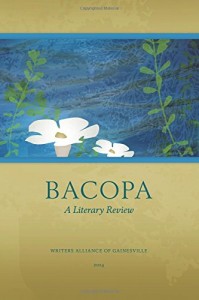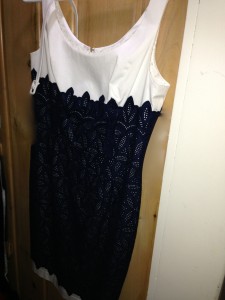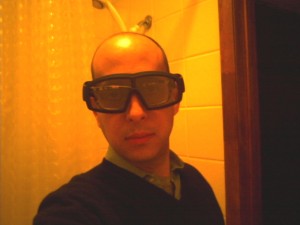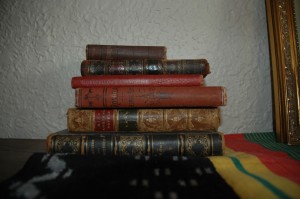I was excited to be named a finalist for the McKnight Fellowship in Creative Prose. It's a highly competitive award, so getting this far was an honor! Congratulations to the 5 very gifted writers who won: Susanne Aspley, Shannon Gibney, Josh Ostergaard, Susan Power and Kelly Barnhill. And congratulations (and some hand holding) for my fellow honorable mentions: Danielle Sosin, Tami Mohamed Brown, Eric Vrooman, Megan Atwood, Laura Salas and Lynne Jonell.
CRIMINAL Women– a blog
Novel Research, The Criminal GeneComment“First thing you do,” I told him, “is make a mental list of all the security precautions.” We were about to case Big-Name jewelry store in suburban Minneapolis, and it was my son’s job to memorize the locations of security cameras, the number of guards, and hunt down the alarm systems. Teenagers are great for that—their brains can hyper-focus—and when accompanied by a parent, they can look around aimlessly without anyone growing suspicious. While Griffin was checking out security, I was going to engage store clerks in conversation, and see what they did if I dropped a ring. This was my objective: I wanted to see whether I could replace a real diamond with a fake while the clerks weren’t looking.
I approached the clerk with my story: “It’s our twentieth anniversary in a couple days, and my husband sent me over to pick out a present.”
This isn’t my husband’s style at all. He’s sweet and thoughtful as a gift-giver, taking his time, consulting friends. But for this occasion, I invented a crabby, mega bucks guy, who didn’t devote much time to me, but who was willing to shell out thousands on high-class rocks. And I had to pick them out myself.
“When do you get new diamonds?” I asked.
“We don’t have regular deliveries,” the clerk said politely. He was good. He wasn’t giving me specific information, but he did it well so as not to offend. This denotes training, which I admire.
“I’m not sure I like any of these,” I said, waving at the velvet-lined case in front of me.
I picked up the first band—platinum studded with diamonds and emeralds—sliding it onto my finger and turning to Griffin. “What do you think, Sweetie?”
Griffin shook his head. “It’s fine. Can we go?”
I appealed to the clerk. “Don’t you think he needs to learn about diamonds? You know, the three C’s?”
The clerk smiled, and launched into the speech about color, cut and clarity. Griffin actually listened as I pulled the ring off my finger, and the diamond dropped onto the floor. When I stood up with it, the clerk took it from me calmly and examined it through a loupe. He wasn’t being disrespectful or even suspicious. He was probably examining the setting for damage, but the loupe would also tell him whether I’d done a switch.
As I tried on more rings, Griffin ranged along the case, sucking on a Tootsie roll pop. When he finished, he poked his head around the back of the counter. “Excuse me!” a woman called to him. “You can’t go back there!”
“Sorry,” he said sullenly. “Just wanted to throw away some garbage.”
When we left, Griffin gave me the run-down: three cameras, showing practically every angle of the store. Armed security guard, demonstrating interest in the customers. A sophisticated alarm system blinking behind the counter. The clerk never let the diamond out of his sight, and he’d given it that good long hard look through the loupe. Not a good place to do a switch. You could never replace a real diamond with a fake under his watchful gaze.
Several streets over, I tried on multiple rings, dropping a $10,000 solitaire onto the floor. I dropped it a second time to be sure. The owner was so casual about it that I assumed the diamond was a fake, that they had synthetic stones in real settings, like some places do. Finally I looked at it through the loupe, seeing the little cuts and imperfections of a real stone. This rock was real. “Nice,” I said.
As Griffin and I left, I clucked over the lack of precautions. “I could have replaced that ring with a fake three times over,” I said. “And we could have had someone waiting for us at the exit, or we could have just handed it off to someone in the gang.”
“We don’t have a gang,” my son said. “Remember?”
“I’m just saying, is all.”
“You know, Mother,” he said. “This is not exactly Parenting 101, what if I end up as a thief?”
The teenager’s delight: torturing parents with what-ifs about their future.
“I prefer to think of it as teaching you how to be observant,” I said. “What if you end up as a novelist?” As we sat in the car I wrote down all the details I remembered. The pained look on the first clerk’s face when I dropped the ring, and the second clerk’s lack of suspicion—chatting happily with me about the ring he bought his wife for their anniversary. Griffin added details about how the store owner took a call and actually turned his back to us.
“Maybe we were acting so much like people who weren’t going to steal,” Griffin said, “that he could tell.”
And this is how novels get written. Or at least, this is how my novel, The Criminal Gene, is getting written. It is a coming-of-age story about a girl who discovers, at the age of sixteen, that she comes from a family of female criminal masterminds: a bildüngsroman with intent.
In the novel, there’s a scene where my protagonist Nina cases jewelry stores with her grandmother’s best friend, Aggie. Aggie makes Nina take note of all the security precautions, just like I did with Griffin. To finish writing the scene, I needed to take notes on how I felt while this was going on, and on how an essentially honest person would feel while planning felony theft.
I find that I need to try out a lot of scenes beforehand; I need to know how my characters might be feeling, how people respond to them, the smells and sounds, the nervous sweat. I have to inhabit their bodies, and feel the space around me, sense the weight of the air. And I do tons of research, losing myself in old newspaper articles, sometimes getting lost in stories that never make it into the novel.
Something you should know, by the way, is that switching out a real diamond for a fake is difficult. It’s almost never done, in part because most crooks prefer what’s called “smash and grabs,” which are easy, fast, and hard to protect against.
You should also know that I changed some details so that people who live here can’t recognize the stores.
Bacopa Literary Review fiction contest
Published FictionCommentWords Foretold
Work I love8 CommentsGarcía Márquez died today, and I feel strangely destitute, as if a friend passed away. In homage, I want to gather your favorite quotes from his work. What are you favorite quotes from his work? I’ll post them here—I’d love to know, and it’s a way of honoring him. I wouldn't say that García Márquez is my favorite writer--I haven't reread his work in years--but he's one of the writers who convinced me that fiction can change reality. The first time I picked up One Hundred Years of Solitude, it was as if the sea had swallowed me whole. Such was the force of his words. And here’s my favorite line, from a man who was reborn through his work. It's from Love in the Time of Cholera -- my own translation.
He allowed himself to be swayed by his conviction that human beings are not born once and for all on the day their mothers give them life, but that life obliges them over and over again to give birth to themselves.
Love is the Language
Fiction and LanguageComment2013, the year Love became the official language of Minnesota This year, my two dear friends Anne and Anna were married in Minnesota, after eighteen happy years together. I have known Anne since college, and so I was involved in all the preparations: buying dresses, agonizing over shoes, consulting on matters of etiquette, discussing flowers and music, reception venues and invitations.
Despite the groundbreaking political context, the preparations were incredibly familiar. Just as in every other wedding, the couple kept some traditions and reinvented others. Anne and Anna were married in a church, with loved ones reading poems and bible passages, and with a sermon dedicated to their union. There was beautiful music. A flower girl heralded their procession. As their loved ones beamed proudly, they were given away by family members. Later we celebrated with an elegant buffet reception. In a nod to modernity (and the environment) Anne and Anna decided to go with emailed invitations instead of paper. The reception included karaoke.
In fact, while there were significant legal and cultural battles that had to be won for this ceremony to happen, there were no important traditions that need to be reinvented for a same-sex wedding. Here are the ones that Anne and Anna had to change: 1) Instead of one bridal dress, there were two lovely cocktail frocks. And 2) Well, there is no number two. Just the dress. Every other change was a matter of language.
After all, the traditional promise--and the central idea behind every wedding ceremony--is that the couple vow to love and honor one another against all odds, in a sickness and in health, for richer and for poorer, something that Anne and Anna had already done for nearly two decades.
The rewording (spouse instead of husband, woman for man) in the ceremony didn't alter that profound vow. When my husband referred to himself as a "groomsman," I reminded him that he was a "bridesman." He loved that. "It sounds almost medieval," he said. "Like I'm the member of a royal wedding party."
And it did feel like the wedding of royalty, because it was both an intimate celebration and a public joy. Anne and Anna's union represents the happiness of so many other people. Not only the many friends they have gathered around them during their long and loving partnership, but the thousands of Minnesotans who are now free to marry.
The Importance of Dead Girls.
Published FictionCommentMy short story, "The Importance of Dead Girls" appears in the Fall 2013 issue of Southern Indiana Review! I love SIR, and it was a great experience to work with such a talented editor (Ron Mitchell). There are some wonderful stories in this issue: Brett Smith, Gabrielle Burton, and Jill Kolongowski are a few of my favorites.
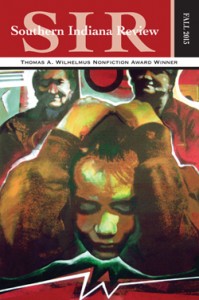
Reader, I Divorced Him
Fiction and LanguageCommentMy short story, "Reader, I Divorced Him: Famous Literary Couples Untie the Knot," was just accepted for publication by Amarillo Bay to be published in November. This is a story in which I imagine divorce narratives from Jane Eyre ("Reader, I married him" is the most famous line from the novel) and Pride and Prejudice (Elizabeth Bennet and Mr. Darcy do a "he said/she said").
On fiction and language: Reading The Confederacy of Dunces in Paris
Fiction and LanguageCommentFor years I hated American English. It was silly: the result of a childhood spent watching British television,and from studying Spanish and French in college. I was convinced that everything across the Atlantic was better, more sophisticated, more ironic. In particular, I hated the sound of Americans, especially the voices of U.S. tourists when I traveled. When I lived in Paris, I was unkind. If tourists came up to me on the street to ask directions, I pretended I didn't speak English. (That still makes me cringe.) And then came July. Everyone I knew had gone to Provence, and I was stuck in the city with the tourists and the stifling heat. I hadn't spoken or read in English for months, it seemed, when I passed by Shakespeare & Co. and saw John Kennedy Toole's The Confederacy of Dunces on an outdoor display. I had never read the novel before, so I picked it up and brought it home.
I learned several things from reading The Confederacy of Dunces that summer. I learned that the harsh, jangly American accent I had despised for so long was really something I loved. It was the most jarring experience to be laughing at Ignatius P. Reilly in English one minute and then hear neighbors going past my door speaking in French: their sounds so elegant and precise. And I realized that I was homesick for the language of America, which suddenly seemed rich and full of possibilities I had never imagined.
Fiction is Dread 2 or Adam Novy on happy endings
CommentThe novelist Adam Novy was recently interviewed in Outlet: Electric Literature‘s blog. And he said something about happy endings that made me think more deeply about fiction and anxiety (see my recent post Fiction is dread.)
I need a happy ending as much as any American and I feel existentially abandoned if I don’t get one, but I think happy endings make us stupid. It’s a little embarrassing that we have to cheer up the reader so much. Aren’t there drugs for that? I know why writers imply that we’re supposed to teach the reader to be more generous and more sympathetic, and that we create the possibility for something better by putting that better vision in our work, but I also feel like we have a job to give the reader the tools to understand loss. One way to say it is that writing can help us repair the world, but it can also help us understand loss, and maybe to know if loss didn’t have to happen the way it did.
I love the sense that writing helps readers repair the world, and it sounds beautiful to help readers replot narratives of loss. But isn’t that the way to madness, to replay those stories of loss in our heads? Maybe his novel The Avian Gospels will answer that question. (I’m planning to receive it as a b-day present.)
The Outlet interview is wonderful,go ahead and read it, especially for his comments on how the internet makes him anxious. You can tell that from his web site, which has Hieronymus Bosch repros and crazy birds.
Fiction is dread
5 CommentsGood fiction makes me really anxious. I can't stand worrying about characters, and I speed-read to reach parts of safety. Sometimes I have to put books down and walk around the room to calm my nerves. My friend Debra said something once that I repeat often: "No actual human beings were harmed in the making of this novel." But I've never been able to separate fiction and reality very well. I was thinking about this because Cecil began listening to Nicholas Nickleby as he drove to Milkwaukee last week. He loved it, and he is now listening on headphones at night before bed. Nicholas Nickleby is one of my all-time favorite novels: big and juicy and comic, yet also about injustice and class. But I would have a hard time listening before bed, because I get infuriated with Ralph Nickleby, worried for Nicholas, angry for poor Smike. I would need to fast forward through those parts or I might start yelling at the book.
It doesn't make sense, of course. I know the ending, know that (spoiler alert!) Ralph gets punished, Nicholas triumphs, Smike dies of consumption with Nicholas by his side. (It's a 19th century novel!) The book won't change. When I was a little girl, I believed that books represented real worlds, and that a story could change when the book was closed, because the real people inside could change their fates. Is that where narrative worry comes from, from the thought that the story might change behind your back? Or is it just that our brains are hard-wired for anxiety-producing conflict?
Stealing your moon from the right part of the sky
Uncategorized3 CommentsResearch hits the sweet spot for me. When writing gets tough, other people clean their kitchens as a way to avoid the computer. My kitchen stays messy. I get lost in old newspaper articles, diaries, and histories. And with my novel, I was faced with questions about my characters that only research could solve. For example: what motivates someone to choose crime as a profession? I have an entire gang of old ladies who steal cars, fence stolen goods, and help with the odd bank robbery or jewelry heist. My main character's great-aunts, Wilma and Eugenia, are intent on passing down the family business to young Nina.
In trying to understand their motivation, I set up an entire genealogical chart for my criminal family of women: starting with Sarah Burd, a domineering Virginian married to a revolutionary colonel. About to lose their farm because of her husband's devotion to the revolutionary cause, Sarah stole a pair of garnet earrings from Martha Washington at a ball. I kept going from there, and it became an obsessive exercise. I continued the entire family line through the 19th century (Mary Lincoln got fleeced in a Burd family financial scam) and up to the 20th. None of this research made it into the novel, but it got me immersed in criminal cultures.
Some of the best histories about crime and women are about England, and I read those, too, discovering the story of the great pearl heist (now a nonfiction book) with, I was delighted to find, a gang of women thieves.
Eventually--like the 9 pound dog who eats a 5 pound bag of sugar*--I was so full of information that I had to stop. And what did I find out? People treat crime as a profession for many reasons. What they all share is a feeling that they can away with it, that they're smarter than the rest of the world, and that the really good ones also do it because they are so good at it that they can't bear to stop. That was helpful in building character. When asked by Nina why they don't stop stealing since they have so much money, Eugenia says, "It would be a real crime not to do our art. That's how we're not like other criminals."
In the novel, I start the family criminal enterprise with great-grandmother Nanabelle Lindstrom, a brilliant and ruthless gambler from Minnesota, who meets her future husband when she cheats at blackjack in his speakeasy. I based their relationship on my (virtuous) grandparents' story, but that's a different tale.
I also found out (no surprises here) that most Hollywood movies get it wrong. Safecrackers laugh at all safecracking scenes, just like my lawyer husband can't stand watching your average courtroom drama. This leads me to the title for this post, which is based on a quote from Eudora Welty, and comes from her memoir One Writer's Beginning.
“I never found out the moon didn’t come up in the west until I was a writer and Herschel Brickell, the literary critic, told me after I misplaced it in a story. He said valuable words to me about my new profession: ‘Always be sure you get your moon in the right part of the sky.’”
*from a story told by Kurt Braunohler on This American Life
